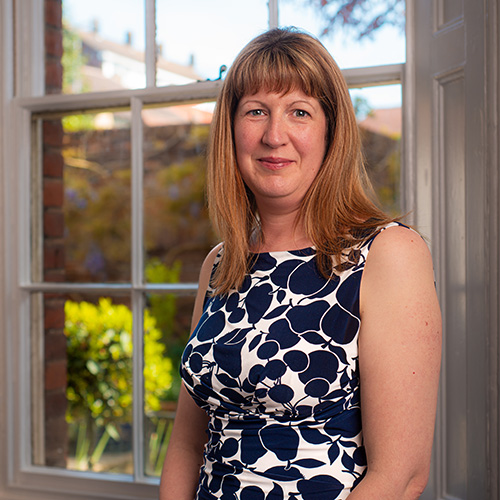Home / For You / Private Client / Probate/Letters of Administration/Administration of Estates
What is Probate?
Administering a Will and distributing an estate is known as "Probate." This process is typically the responsibility of the Executors named in the Will. The person applying for Probate must ensure the estate is handled correctly and lawfully.
The probate procedure generally involves three stages:
- Obtaining the ‘Grant’ from the probate registry.
- Administering the estate’s assets and property.
- Settling any due inheritance tax.
Challenges to a Will are becoming more common, and a Probate Court may be required to resolve disputes. A professionally written and valid Will can make the Probate process smoother and easier for Executors to defend against any challenges.
Letters of Administration
If you die without a Will, known as dying "intestate," sorting your affairs can become more complicated and costly for your loved ones. It may also mean your estate is not distributed as you would have wished, and in some cases, it could go entirely to the Government.
Your next of kin can apply for Letters of Administration, which gives them the legal authority to manage your assets as an "Administrator," similar to the role of an Executor.
Letters of Administration are equivalent to a Grant of Probate, but apply when there is no Will. Functionally, both serve the same purpose.
Administration of Estates
We provide sensitive and pragmatic advice to help administer estates efficiently and promptly. Our services include obtaining grants of representation, handling tax affairs, distributing the estate, preparing estate accounts, tax mitigation, and advising on deeds of variation.
Probate/Letters of Administration/Administration of Estates Services
Meet Our Private Client Team

Katie Carter
Partner
Tel: +44 (0) 1306 502297
Email: Katie Carter

Mehboob Dharamsi
Partner
Tel: +44 (0) 1932 588579
Email: Mehboob Dharamsi

Jenna Hopkins
Partner
Tel: +44 (0) 1483 411525
Email: Jenna Hopkins

Amber O’Connor
Partner
Tel: +44 (0) 1306 502290
Email: Amber O’Connor

Victoria Evans
Senior Associate
Tel: +44 (0) 1483 411512
Email: Victoria Evans

Elizabeth Muston
Senior Associate
Tel: +44 (0)1306 502203
Email: Elizabeth Muston

Allison Pain
Senior Associate
Tel: +44 (0) 1306 502217
Email: Allison Pain

Joanna Pashley
Senior Associate
Tel: +44 (0)1306 502959
Email: Joanna Pashley

Diane Sumpter
Senior Associate
Tel: +44 (0)1306 502235
Email: Diane Sumpter

Kirsty Farquhar
Solicitor
Tel: +44 (0) 1483 861848
Email: Kirsty Farquhar

Meg Constable
Legal Executive
Tel: +44 (0) 1483 411529
Email: Meg Constable

Tim Hughes
Consultant Solicitor
Tel: +44 (0) 1306 502212
Email: Tim Hughes

Sarah Noake
Consultant Solicitor
Tel: +44 (0) 1932 588568
Email: Sarah Noake

Liz Dalgetty
Consultant Solicitor & Notary Public
Tel: +44 (0) 1306 502251
Email: Liz Dalgetty

Megan Lawless
Associate Solicitor
Tel: +44 (0)1306 502326
Email: Megan Lawless

Lucy Whittam
Associate Solicitor
Tel: +44 (0) 1306 502962
Email: Lucy Whittam
FAQ
Divorce FAQ+
How will our assets to be split?+
Generally, the starting point for splitting assets is 50/50. However, each case will be different and the split will depend on factors such as if you were married or in a civil partnership, how long you were together, how complicated your financials are, and whether both parties agree to a financial settlement. In cases where both parties agree to a financial settlement, the assets can be split according to the agreement, 80/20, 70/30 or another split. However, if it is not possible to come to an agreement, we can act as mediators and try to help negotiate to reach an amicable financial agreement. If this mediation is not successful or your finances very complicated, then a financial settlement can be reached through Court.
How much am I entitled to?+
In the UK, generally assets are split 50/50. However, this is supposed to be an amicable or fair split and if your finances are very complicated or you run a business or you brought many assets into the marriage or civil partnership, a 50/50 split may not apply, as it may be considered unfair. The final split will depend on what is considered fair and what can be negotiated and agreed upon. This could be 80/20 or 70/30 or another split. Whatever split you agree on, you will have to apply for a consent order to make it legal and the team at Downs can help with this process.
How will maintenance be calculated?+
There are two types of maintenance, spousal and child maintenance. For child maintenance, there is a statutory amount that will need to be calculated and paid set forth under the Child Maintenance Act for the person who will be responsible for the child. However, for spousal maintenance, there is not such fixed calculation. The spousal maintenance will be calculate based on need and lifestyle and what the two parties can agree on. If no agreement can be reached, then the Court will decide the amount to be paid and how long it will need to be paid
Is it true the wife always gets the house?+
The simple answer is, no. There are many variables that determine who will get the home you have lived in together. Part of the decision will depend on who owns the home. The outcome will differ if the home is registered in your name only or jointly with your partner or is owned together with someone else. It will also depend on whether you have children or if it is easier to sell the home and share the proceeds.
However, if your partner owns the home and you are worried that they will sell it prior to the divorce and keep the proceeds, then our team can help you register your home rights, which can stop your partner from selling the home.
What happens with pensions on divorce?+
Simply put, pensions are considered part of the joint finances and will be split, starting at 50/50, when you divorce or dissolve a civil partnership. The final split will be determined by the financial settlement you agree on either amicably negotiated between you and partner, mediated by us or through a court order. However, there are ways to negotiate pension splits and this may depend on your age and circumstances. Our family law team can advise you on what will best suit your situation.
Are assets overseas taken into account?+
Legally, all assets, regardless of if they are in the UK or overseas are considered joint assets or matrimonial property. However, a distinction will be made whether you brought those assets to the marriage or civil partnership. If the overseas assets were obtained prior to the marriage or civil partnership, they are unlikely to be considered as part of the matrimonial property. However, in some cases it may be difficult to enforce UK court orders in a foreign country, if your partner is not amicable, and this may lead to problems when trying to access or sell those overseas assets. At Downs we can advise you on how best to deal with overseas assets.
Family FAQ+
Can I get divorced?+
You can get divorced if all of the following apply to you:
- you have been married or in a civil partnership for more than one year.
- your relationship with your partner has irretrievably broken down based one or more of the following grounds: adultery, unreasonable behaviour, desertion, two-year separation with consent, or five-year separation.
- your marriage is legally recognised in the UK.
- your permanent home is in the UK.
Please come and discuss your situation with the family law team and we can advise you of your legal situation. In some cases, it may also be possible to annul your marriage.
How do you get a divorce?+
After you have confirmed that you are able to get a divorce, then you must apply for a divorce. This involves filing a divorce application or divorce petition and we can help you fill this out and gather the appropriate documents that will need to be submitted for the application. For one, you will need to have your original marriage certificate or a certified copy, and if it is not in English have a certified translation made. We can explain the various steps and walk you through the whole process.
Do I have to divorce, can we just separate?+
Yes, you can just separate. However, there are different legal implications when it comes to a separation and a divorce. Generally, a divorce will carry bigger legal weight than a separation and you may be entitled to more assets under a divorce than a separation. Our family law team can advise you on what exactly the legal differences are and what option will best suit your circumstances.
Will I have to go to Court?+
The short answer is no, you do not have to Court. However, this will depend very much on whether you and your partner can negotiate and come to amicable agreements. Our family law teams are happy to mediate and help with negotiations. However, if you are unable to come to an agreement with your partner, then the only solution is to go to Court.
What about arrangements for children on separation?+
If you have a child or children, you and your partner should try to come to an agreement on child arrangements. Sometimes this can be difficult and the family law team at Downs can help mediate discussions, especially when it comes to issues like who will support the child(ren) financially, where will the child(ren) live, and how much time the child(ren) will spend with each parent. Some of these arrangements should be made legally binding and we can help prepare the paperwork for that. If it is not possible to come to an agreement through mediation, experienced solicitors at Downs can represent you in Court.
How much does it cost?+
The cost of your divorce or dissolution of a civil partnership will depend heavily on how complicated it is and how long it takes. A very straightforward case, where both parties amicably negotiate a financial settlement and the splitting of assets and child arrangements, if required, will cost much less than if no amicable financial settlement can be reached and your case has to go to Court. But don’t let cost be a hindrance, come and talk to us at Downs and we can give you an estimate of how much your case may cost. Additionally, depending on your circumstances, we do offer a fixed fee divorce package.
Can I get Legal Aid?+
Depending on your financial situation, you can get Legal Aid. If your income is low and your financial means are limited, you may be entitled to waive some of your court or tribunal fees. There are numerous eligibility criteria, based on your income, savings and benefits. However, as a general rule, if you earn £1,170 or less a month before tax, then you are eligible. Also, you can receive Legal Aid, if you are separating from an abusive partner.









